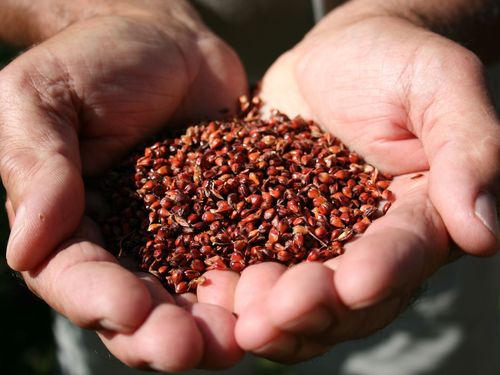Meadow irrigation in Tyrol
Knowledge concerning nature and the universe in Tyrol, inscribed 2018
This submission deals with a centuries-old method of irrigating inner-Alpine dry areas. Water is diverted from a brook into the "Hauptwaal" [main canal], through which it flows downhill at a shallow angle to reach the land that requires irrigation. Today, this simple but efficient method of irrigating agricultural land is still practiced by nine cooperatives in eight municipalities of Tyrol’s Oberland region.
Meadow irrigation in Tirol’s Oberland region stands out as an efficient and balanced form of water management. The centuries-long tradition of handcrafting and technical skills pertaining to the irrigation systems’ construction, as well as sets of rules concerning the fair distribution of water, facilitate the sustainable handling of water and contribute to the character of the region’s cultivated landscape as well as to its biodiversity.
The construction and maintenance of these systems is possible only thanks to the efforts of individuals organised as cooperatives, and experiential knowledge plus a catalogue of expressions containing specific terms such as Frondienst [volunteer work for the community] are gathered and handed down orally from one generation to the next. Each cooperative elects its own Waalmeister [canal master], who is responsible for maintaining the canals (Waale) and seeing to the water’s fair distribution. A common set of rules contributes to consensus-building and strengthens social ties within the involved village communities.
This irrigation method is frequently viewed as old-fashioned and economically inefficient, and the pressure to re-purpose the existing facilities (e.g. for energy production) is growing. But the cooperatives are pursuing the common goal of preserving these irrigation systems and continuing their operation according to age-old methods in order to prevent the loss of knowledge. And the knowledge of the Waaler, as their members are referred to, is particularly valuable when these systems and those who rely on them are threatened by storm-induced floods or mudslides. The eight municipalities concerned here have initiated efforts aimed at better informing locals as well as guests about this irrigation method—efforts including publicly accessible trails near the irrigation facilities as well as projects involving schools.
Downloads
- Application form + Expertise (in German only) 847 KB (pdf)

![[Translate to EN:] © J. Ségur/ZED, with the permission of UNESCO](/fileadmin/_processed_/d/b/csm_Convention-2003-IKE_0832a6a47d.jpg)
![[Translate to EN:] © ÖUK](/fileadmin/_processed_/3/9/csm_P1011318_7eac86402f.jpg)

![[Translate to EN:] © Weitblickfilm](/fileadmin/_processed_/9/8/csm_Workshop_17_2dee1e1fd8.jpg)